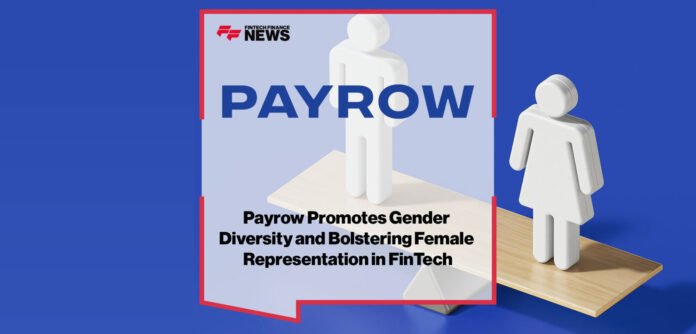The FinTech Sector: A Call for Gender Diversity
The FinTech sector is globally renowned for its cutting-edge innovation and rapid growth trajectory. However, it continues to lag in one critical area: gender diversity. Women account for just 26% of employees in this field, and despite increasing calls for greater gender balance, they remain notably underrepresented, particularly in senior roles. The UK, a global leader in FinTech, is no exception. However, some companies are taking the initiative by championing gender diversity.
The Struggle for Gender Balance in UK FinTech
While there has been some progress in the UK FinTech sector for female professionals, true gender balance is yet to be attained. A recent study by EY and Innovate Finance titled ‘Transforming UK FinTech: Overcoming Barriers to Female Advancement’ underscores this point. The study gathered insights from 120 nominees on the Innovate Finance Women in FinTech Powerlist and revealed significant obstacles. Notably, 27% of respondents felt that their contributions were overlooked, while 25% cited unclear promotional pathways as primary hindrances.
The study also explored potential solutions, with 17% of participants favoring gender pay gap regulation as the most critical avenue to enhancing diversity, equity, and inclusion (DEI). Alarmingly, while the general gender pay gap in the UK stands at 14.9%, it escalates to 27% in tech, 26% in finance, and approximately 22% in FinTech. A staggering 52% of the British population believes that women must exhibit double the effort or qualifications as their male counterparts to achieve comparable milestones in business.
Key factors contributing to the gender pay disparity in the UK’s FinTech sector include the lack of pay transparency and the underrepresentation of women in senior roles.
Payrow: A Case Study in Gender Diversity
Payrow, a FinTech entity based in the UK, has announced that women constitute 30% of its workforce. And that’s just the beginning; the company is methodically enlarging its personnel, augmenting the proportion of women employed. Their Diversity and Inclusion (D&I) policy aids the team in fostering creativity and reducing anxiety levels. The presence of professionals of various ages and genders allows any problem or task to be viewed from different perspectives, boosting overall employee loyalty towards the company and one another.
Furthermore, the absence of biases enables the recruitment of genuinely top-tier employees based purely on their professional qualities and human values. It is commonly believed that gender inequality in FinTech companies is influenced by the significantly higher number of job applications received from men compared to women. Payrow suggests that FinTech company owners should approach this issue consciously and make a deliberate effort to balance the proportion of female hires with respect to the total applications received.
One possible strategy to address this could be the implementation of a women-only shortlist. Moreover, it is crucial for FinTech firms, irrespective of their size, to uphold fair pay scales during recruitment and to adopt technology-driven methods to enhance salary transparency. Fostering diversity is pivotal not just for igniting innovation but also for cultivating a flourishing organizational culture.
Strategies for Promoting Gender Diversity
Promoting gender diversity and female leadership in FinTech requires a multifaceted approach. Here are some strategies that companies can implement:
Setting Gender Diversity Targets
Companies should establish clear and measurable gender diversity targets, particularly for senior roles, and regularly monitor and report on their progress. This accountability can drive meaningful change.
Implementing Mentorship and Sponsorship Programmes
Mentorship and sponsorship programmes can provide valuable support and guidance to female professionals, helping them navigate their careers and overcome potential barriers. These initiatives can create a supportive network that empowers women to take on leadership roles.
Creating Inclusive Recruitment Practices
Companies should review their recruitment processes to ensure they are free from bias and actively seek to attract a diverse range of candidates. This can include using gender-neutral language in job descriptions and ensuring diverse interview panels.
Offering Flexible Working Arrangements
Providing flexible working arrangements can help attract and retain female talent by accommodating their needs and preferences. Flexibility in work hours and remote work options can significantly enhance job satisfaction and retention.
Fostering an Inclusive Culture
An inclusive organizational culture, where all employees feel valued and supported, is essential for promoting gender diversity and female leadership. This can be achieved through regular training on unconscious bias and creating safe spaces for open dialogue.
Adapting to Future Skill Sets for a More Diverse FinTech Sector
In addressing gender inequality, we’re up against some deeply entrenched challenges. Persistent stereotypes, such as the misbelief that women aren’t as adept in fields like maths and technology, can deter many from these career paths. Additionally, the stark absence of female leaders in tech paints a somewhat unwelcoming picture for aspiring female professionals.
Though incentive schemes can address some of these imbalances, we can’t ignore the demanding nature of industries like FinTech. Traditional expectations often place undue burdens on women, making the balance between work and home life more challenging.
According to Payrow, while it is crucial to tackle the current challenges, it is also important to contemplate the role of gender diversity in the future of the sector. While championing STEM for women remains crucial, the ascent of AI may reshape necessary skills. As FinTech develops, emphasis on business acumen, understanding one’s clientele, and innovation might eclipse mere coding.
“There’s no one-size-fits-all solution to these issues, but by fully grasping the sector’s direction and the roles women might occupy in the future, there’s hope for a more gender-balanced FinTech landscape, which would be a welcomed change,” comments the team at Payrow.
In a field that’s evolving as rapidly as FinTech, securing the best talent is paramount. Championing gender diversity not only broadens the talent horizon but also underscores a commitment to inclusivity, bolstering a company’s reputation and attractiveness to prospective talent.

